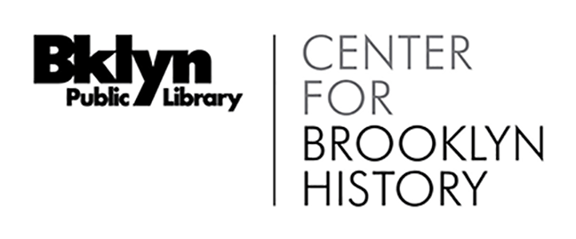Washington A. Roebling family letters
Call Number
Date
Creator
Extent
Language of Materials
Abstract
Two bound volumes, together titled, containing typescipt copies of letters of the Roebling family, particularly those of Washington A. Roebling. The letters were compiled circa 1955 by Clarence E. Case, executor of the will of Washington Roebling's son, John A. Roebling II. The letters span the period 1821 to 1927, with the majority dating from 1861 to 1868 and 1900 to 1926, and mostly detail Washington Roebling's experiences in the American Civil War and family matters and relationships, especially those with his father, John A. Roebling, and his wife, Emily.
Biographical Note
Washington Augustus Roebling (1837-1926) was an engineer who oversaw the construction of the Brooklyn Bridge after his father, John A. Roebling, the designer of the bridge, died in 1869. After growing up in Saxonburg, PA and Trenton, N.J., Washington Roebling studied engineering at Rensselaer Polytechnic Institute in Troy, N.Y., from which he graduated in 1857. Roebling then assisted his father in running the family's wire rope manufacturing business in Trenton, which later became known as John A. Roebling's Sons Company, and also assisted his father in the construction of a suspension bridge across the Allegheny River at Pittsburgh, PA. Roebling later served in the Sixth New York Artillery during the Civil War, in which his main duty was to construct adaptable bridges for the Union Army. After receiving an honorable discharge as a Colonel in 1865, Roebling married Emily Warren, whom he had met at an army camp in Virginia while she was visiting her brother. He then assisted his father in the construction of the Cincinnati and Covington Bridge in Cincinnati, OH, which was completed in 1867, when John A. Roebling was appointed Chief Engineer of the Brooklyn Bridge. Though Washington Roebling became Chief Engineer of the Brooklyn Bridge upon his father's death in 1869, in 1872 he began suffering severe physical effects of decompression sickness, or the bends, as a result of working in the caissons below the East River during the construction of the bridge's towers. Roebling never fully recovered from his illness, and beginning in December of 1872, Roebling was never again able to visit the bridge site. Instead, he oversaw construction of the bridge using a telescope from the window of his home on Columbia Heights in Brooklyn, and taught his wife Emily in the fundamentals of bridge engineering, so that she could serve as a knowledgeable and authoritative messenger between her husband and the bridge staff. The Brooklyn Bridge was finally completed in 1883 and opened to great fanfare, and since that time the bridge has remained one of New York City's most recognizable and revered architectural icons. In 1883, Washington Roebling retired from engineering and moved with his family to Troy, N.Y., where he resided until his death.
Sources:
- Penn State University. "Roebling, Washington Augustus." Accessed June 16, 2011. http://pabook.libraries.psu.edu/palitmap/bios/Roebling__Washington.html
Scope and Contents
Two bound volumes, together titled Some Roebling Letters and Incidental Matters, containing typescipt copies of letters of the Roebling family, particularly those of Washington A. Roebling. The letters were compiled circa 1955 by Clarence E. Case, executor of the will of Washington Roebling's son, John A. Roebling II. The letters span the period 1821 to 1927, with the majority dating from 1861 to 1868 and 1900 to 1926, and mostly detail Washington Roebling's experiences in the American Civil War and family matters and relationships, especially those with his father, John A. Roebling, and his wife, Emily. While other letters touch upon Washington Roebling's business and professional life, particularly relating to the family's wire-rope-making business in Trenton, N.J., very few letters seem to date from the period of Roebling's involvement with the building of the Brooklyn Bridge, though later letters do contain reflections on his experiences as Chief Engineer of the bridge. Most letters are between Washington and Emily Roebling, though several other Roebling family members and colleagues and friends of Washington's are represented. The second volume of letters closes with a bibliography of source material.
Subjects
Organizations
Families
People
Topics
Conditions Governing Access
Open to researchers without restriction.
Preferred Citation
Identification of item, date (if known); Washington A. Roebling family letters, 1992.020, Box and Folder number; Brooklyn Historical Society.
Immediate Source of Acquisition
Source and date of acquisition unknown. Formally accessioned in 1992.
About this Guide
Processing Information
Minimally processed to the collection level.
Sponsor Note
Note Statement
Repository
Container
This finding aid does not include an online listing of contents.
To learn about viewing this collection in person, please contact cbhreference@bklynlibrary.org.
